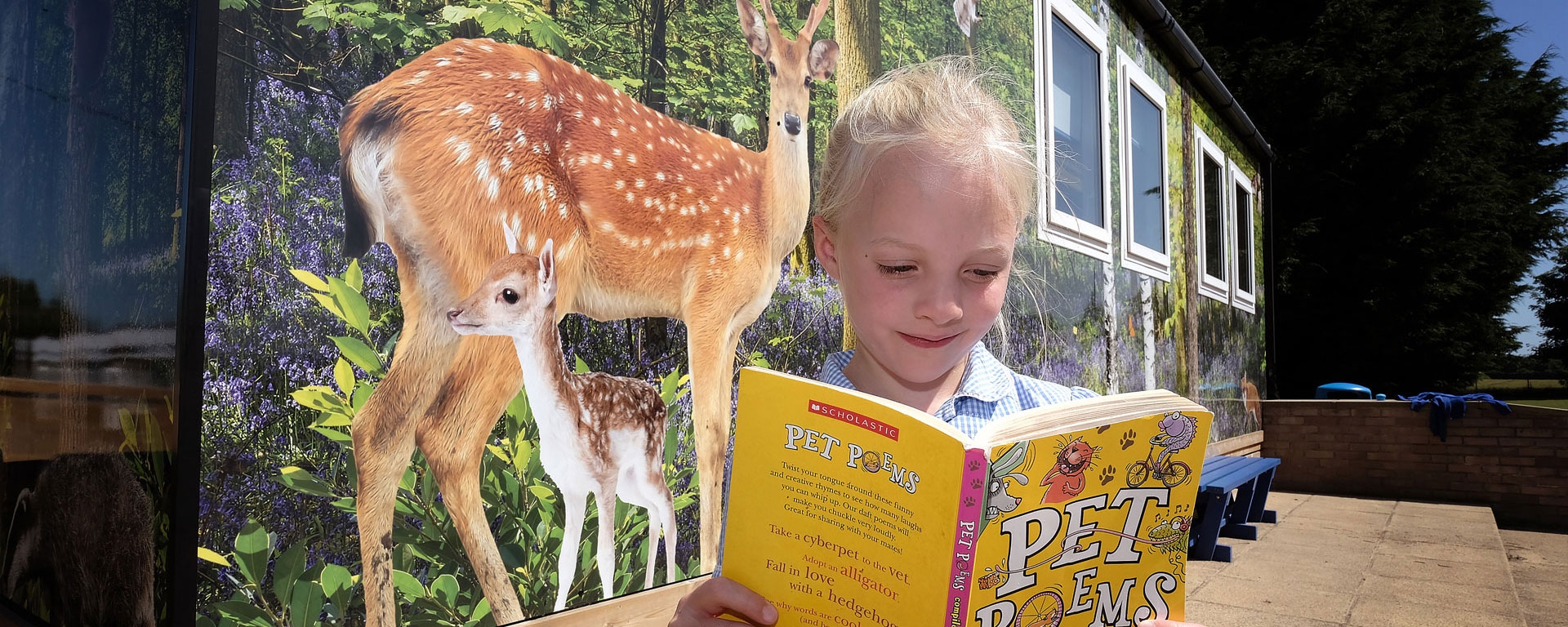
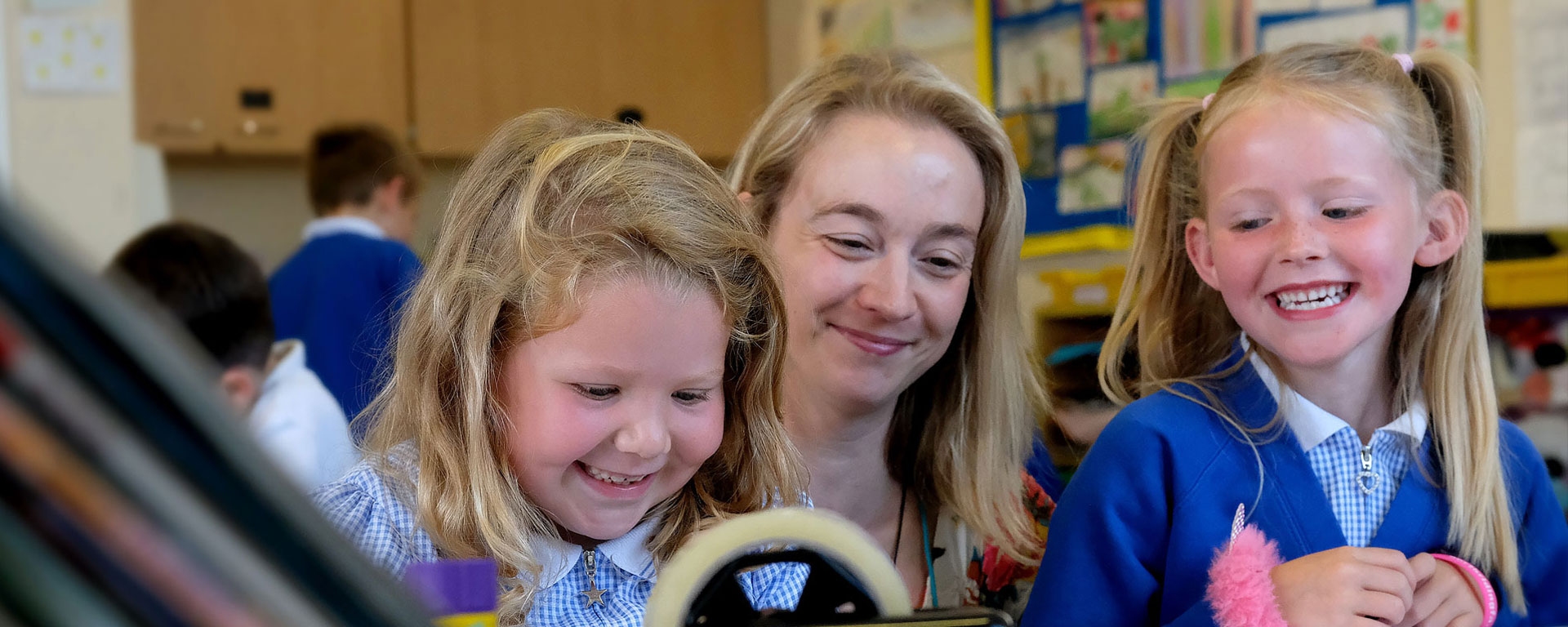
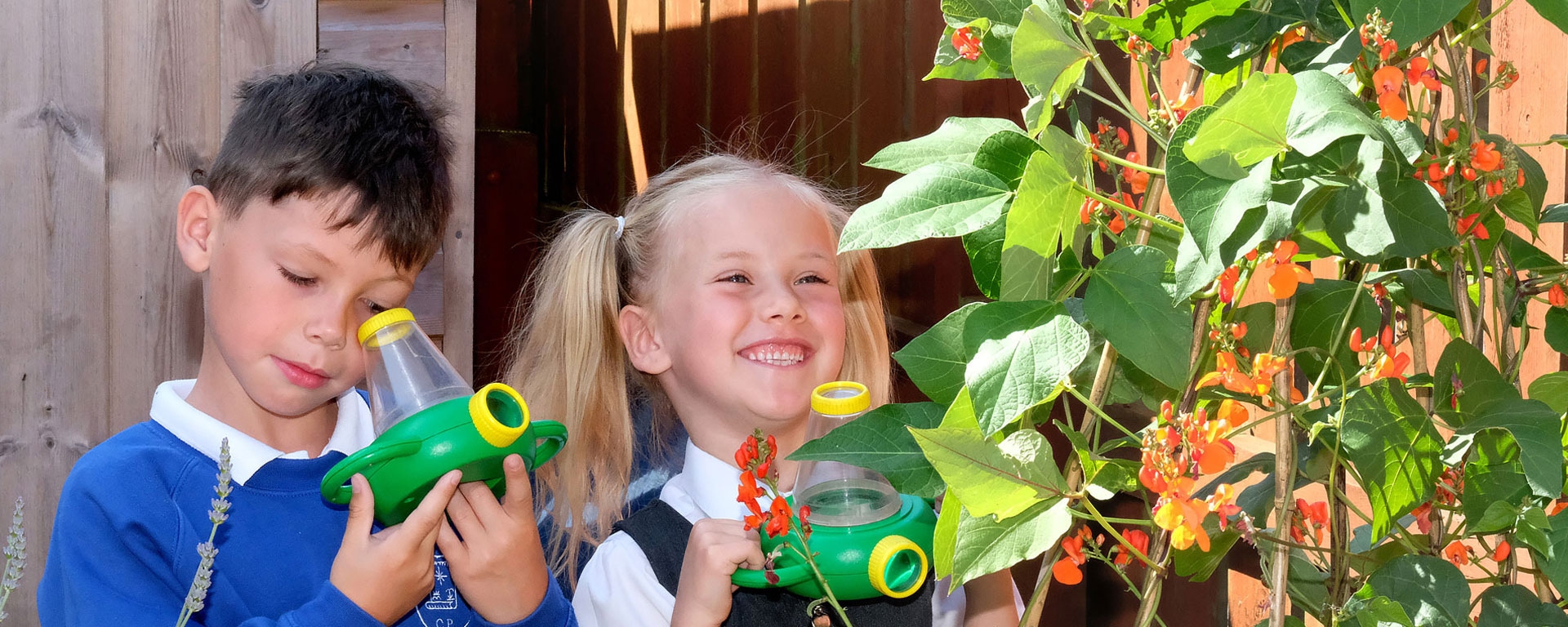
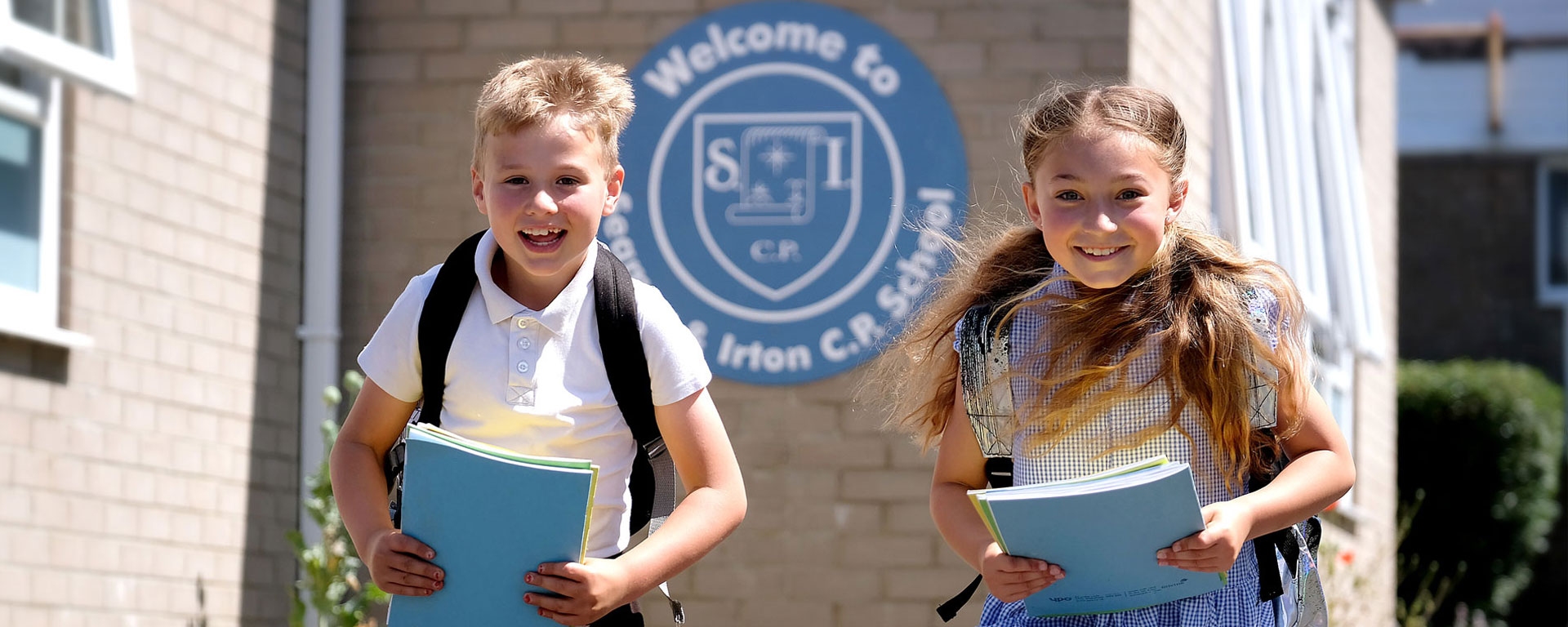
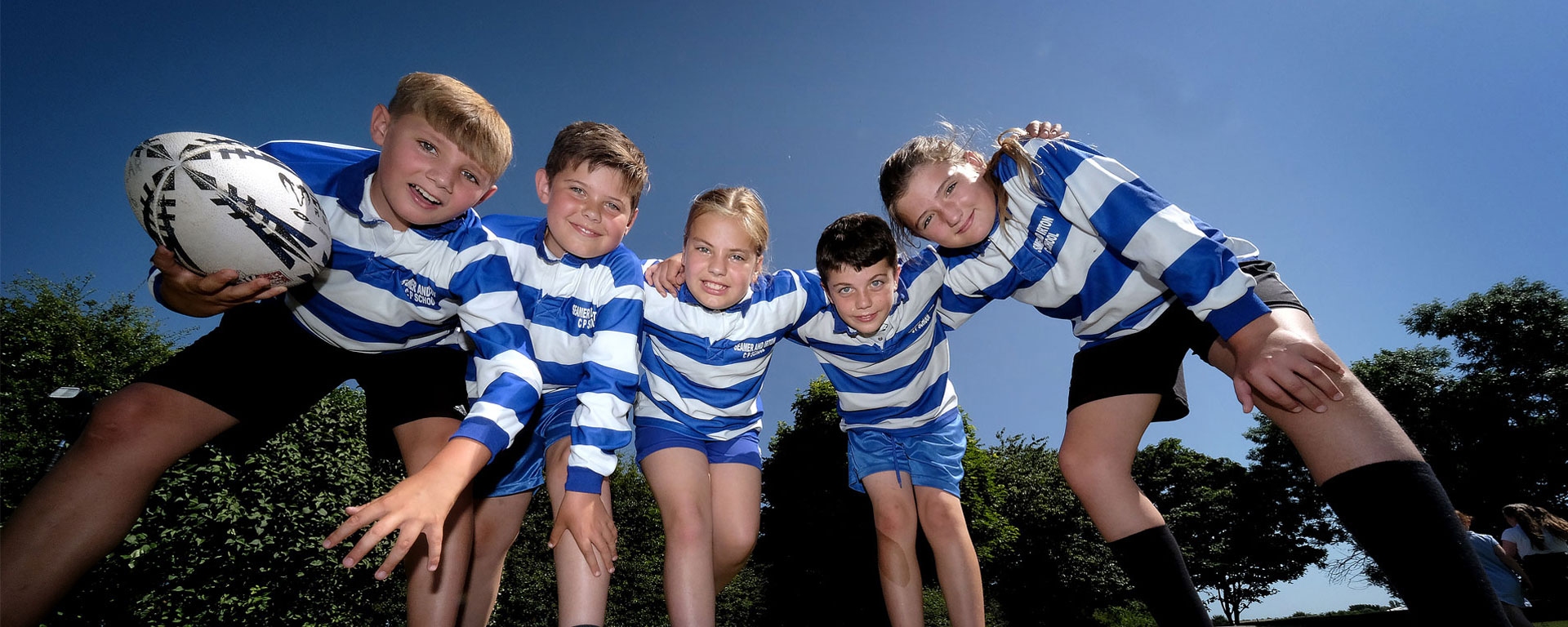


Special Educational Needs & Disabilities
At Seamer and Irton CP School, for all children, our focus is always on providing quality first teaching, beginning in the classroom and this is no different for any child who has been identified as having Special Educational Needs. Although we have a dedicated SEND team, everyone at Seamer and Irton CP School is a teacher of SEND. Our aim is always to meet the needs of pupils with Special Educational Needs and Disabilities (SEND) and we are supported by the Local Authority to ensure that all pupils, regardless of their specific needs, make the best possible progress in school.
| SENDCo | SEND Champion | Teaching and Learning Lead (inc. adaptive teaching) |
|---|---|---|
 |
 |
 |
| Mr T Caffrey tcaffrey@seamerirton.n-yorks.sch.uk |
Mr R Webb headteacher@seamerirton.n-yorks.sch.uk |
Miss C Simmons csimmons@seamerirton.n-yorks.sch.uk |
SEN stands for Special Education Needs. Since the introduction of the latest Code of Practice in January 2015 this can cover any pupil who is not making the expected rate of progress in their classroom, BUT, does not include those children who are simply underachieving.
The code splits SEN provision into 4 broad areas, which can all be provided for here at Seamer & Irton CP School.
a) Communication and Interaction; which includes children with a diagnosis of autism.
b) Cognition and Learning; such as Specific Learning Difficulties like Dyscalculia or Dyslexia.
c) Social, Emotional and Mental Health Difficulties; often underlying issues which undermine.
a child’s attainment, an example being ADHD.
d) Sensory and / or Physical Needs; such as Visual or Hearing Impairments.
If your child has been identified as having a Special Educational Need or a Disability, we will do everything we reasonably can to include your child in the everyday life of the school and to help them make progress. Our Equalities policy explains our plans to overcome any physical barriers that might be present for your child (p.3) during the time that they are on the school grounds. This begins by providing them with Quality First Teaching to make sure that your child takes part in the same activities, in the same classroom, at the same time, as their friends and peers whenever possible with adaptations made to the teaching to support their learning.
If we have identified that your child has not made as much progress as is expected for their age, we will plan for how we are going to provide them with the extra support they need in order for them to return to the expected level of attainment using what is known as the graduated approach; Assess- Plan- Do- Review.
The assessment process is threefold, focusing on:
• A clear analysis of your child’s needs.
• Information from the school’s assessment and experience of the pupil.
• Your views and your child’s views where possible.
A plan to support your child to reach the expected academic levels appropriate to their age is drawn up and included on a document known as a Class Provision Map.
After the support (The ‘Do’ phase), your child’s progress will be reviewed based on the latest assessments and their progress measured towards the previously stated outcomes on the Class Provision Map. This will be reviewed with yourselves at the next Parent’s Evening after the cycle has run for a term to try to boost their progress. If it hasn’t been effective, we will try something different for the next graduated cycle.
As always, if you have any concerns about the progress your child is making, you should talk to their class teacher about it first.
Alternatively, you could approach the school’s Special Educational Needs Co-ordinator (SENCo). At Seamer and Irton school, this position is held by Mr Tim Caffrey, tcaffrey@seamerirton.n-yorks.sch.uk who has completed the National Award for Special Educational Needs Co-ordination.
If you are unhappy with the SEN provision that we are providing for your child you can contact the Headteacher. Alternatively, please follow our complaints policy which can be found on the school website or requested from the school office.
• Your child’s progress is continually monitored by his/her class teacher in line with our assessment policy.
• Progress is reviewed formally every term, and an assessment based on your child’s progress against the National Curriculum is recorded.
• If your child is in Year 1 and above but is not yet able to access the National Curriculum, we will continue to use the Early Years Foundation Style Profile to record their progress until they are able to access the curriculum.
• At the end of Year 6 all children are required to be formally assessed using Standard Assessment Tests (SATS). This is something the government requires all schools to do, and these are the results that are published nationally. Only the headteacher has the authority to disapply a pupil from SATS.
• The progress of children with an Education, Health and Care Plan is formally reviewed at an Annual Review with all adults involved with the child’s education invited to attend, therefore striving to ensure they are making progress towards their identified outcomes.
• If your child has an emotional need or requires support with their social development, we monitor this using a range of different assessment tools, the primary one of which is the Boxall Profile.
• The school also has access to a variety of specialist assessments if it is agreed they could benefit your child. Please ask the SENCo for the full range if you feel that your child might benefit from one of these.
One of the key themes of the Code of Practice is a closer working relationship with parents. If your child has been identified as finding it a struggle to make good progress, despite the provision of extra support we will have given them, the school will set up a meeting to discuss this with you in more detail and to:
• listen to any concerns you may have.
• plan any additional support your child may receive.
• discuss with you any referrals to outside professionals to support your child’s learning.
At this point, we will seek your approval to add your child to our SEN list. A separate Individual Learning Plan to address the underlying cause of their academic difficulties is created and will be discussed with you termly in a Learning Conversation meeting. These are separate meetings to Parent’s Evenings.
This flow chart gives an overview of the process.
If your child is added to the SEN list, this immediately causes a couple of changes to the normal routine.
Firstly, your child will be given an Inclusion Passport. This is a one-page summary of the barriers that are affecting your child’s progress and provides a quick overview of the best strategies to support your child’s learning and progress.
Secondly, as well as the usual 10-minute appointment at Parent’s Evening, we will also invite you to a termly Learning Conversation. They will be held each term during the school day and will include opportunities for your child to be a part of the discussion about their education. These meetings focus on their Individual Learning Plans which focus on any identified underlying barriers to their learning that is slowing their progress.
It is really important to point out that just because your child has been added to the SEN list, it does not mean that they are on it for ever. As soon as they return to the expected level of attainment for their age, we will have another meeting with you to suggest that they are removed from it.
Seamer & Irton CP School is a mainstream school that currently offers a wide range of additional support for pupils who have not been making as much progress as we would expect. This support is under constant review for its effectiveness, and we are always looking to add new support if the evidence supports their benefit. For this academic year, it includes access to a Speech and Language therapist to establish specialist programs to support children after we have identified significant needs in this area.
First and foremost, in keeping with our Quality First teaching approach, we ensure that all our staff supporting children with additional needs are suitably trained. This doesn’t just mean the teachers, but the other adults who are present in the classroom as well. If we feel an adult could better support any child with further training, then we actively try to source that training for them. Our planned training for this year includes a refresher course about how to support children with autism delivered by Autism Education Trust approved trainers.
For pupils who have low achievement in reading we offer additional 1:1 and/or targeted group reading sessions. These are often coupled with phonics sessions based on the Little Wandle program used to teach phonics within the school. The aim of this style of session is to improve your child’s decoding skills when they read.
We also offer small group guided reading sessions where the focus is on making sure that your child can understand what they have read and can identify what the text is implying without directly saying it. These sessions are aimed at helping their comprehension skills.
If your child has lower than expected attainment in Numeracy our initial support will be in the form of SNAP maths. This specialist program allows us to identify if there are any underlying barriers. We have specialist staff to work with your child if they are showing Dyslexic tendencies or if we think that there may be more complex underlying reasons for their low attainment. Talking Mats is a recognised program to enable children to process issues that are affecting their attainment by expressing their opinions in a non-confrontational format. We also have a wide range of programs to support your child’s emotional and social development, should they require it and have a clear anti-bullying policy to protect our most vulnerable learners.
Support and teaching staff work closely to monitor and record the ongoing progress that your child is making and the outcome of the program for them to judge the overall impact of the support and this is recorded termly on Whole Class Provision Maps and Individual Learning Plans.
We also work closely with several outside agencies who will often come into school, after we have made a referral to their service, to help support your child if the need has been identified, such as NHS Speech and Language therapists, Occupational Therapists, Physiotherapists and Family Support workers.
We recognise that transitions can be difficult for a child with SEND and take steps to ensure that any transition is a smooth as possible.
If your child is moving to another school:
We will contact the school SENCo and ensure he/she knows about any special arrangements or support that need to be made for your child.
We will make sure that all records about your child are passed on as soon as possible.
We will arrange for your child to make additional visits to their new school and partake in enhanced transition activities, if appropriate.
When moving classes in school:
Information such as your child’s most recent Individual Learning Plan and Inclusion Passport, will be passed on to the new class teacher IN ADVANCE. During the autumn term you will also be invited to attend a Learning Conversation with your child’s new class teacher, to talk about their educational needs for the year ahead. All children with SEND receive an enhanced transition offer appropriate to their needs.
In Year 6:
The SENCo from Seamer and Irton will work closely with the SENCo of the receiving school to share information and discuss support needs prior to any transition.
If necessary, we will spend time with your child working with them to make sure they understand the changes ahead. If your child would be helped by a book or Social Story, to support their understanding of moving on, then it will be made for them.
Where possible and if needed, your child will visit their new school on several occasions and in some cases, staff from the new school will visit your child in this school.
In line with the Children and Families Act (2014), the Local Authority (North Yorkshire) are required to publish their Local Offer. The main purpose of the Local Offer is to provide information about provision, services, and procedures available in the local district to parents / carers and young people in an accessible form. It is not just a directory of services, it includes advice on how to access these services or how to ask for an Education, Health, and Care assessment. It can be accessed here for an overview https://www.northyorks.gov.uk/children-and-families/send-local-offer
It is recommended you contact your local SENDIASS (Special Educational Needs and Disabilities Information, Advice and Support Services) officer –on 01609 536923. Their website can be found at https://sendiassnorthyorkshire.co.uk/
If you have any trouble accessing these or would like any advice about the Local Offer, please ask the SENCo.
All North Yorkshire maintained schools have a similar approach to meeting the needs of pupils with Special Educational Needs and Disabilities (SEND) and are supported by the Local Authority to ensure that all pupils, regardless of their specific needs, make the best possible progress in school. At Seamer and Irton CP School, for all children, our focus is always on providing quality first teaching, beginning in the classroom and this is no different for any child who has been identified as having Special Educational Needs. The information in this report is updated annually and was last updated in September 2024.
| Document Name | Date |
|---|---|
| SEN Information Report.pdf | August 30 2024, 11:42:50 |
| School Provision-Mapping Overview7.24.pdf | August 21 2024, 12:14:26 |